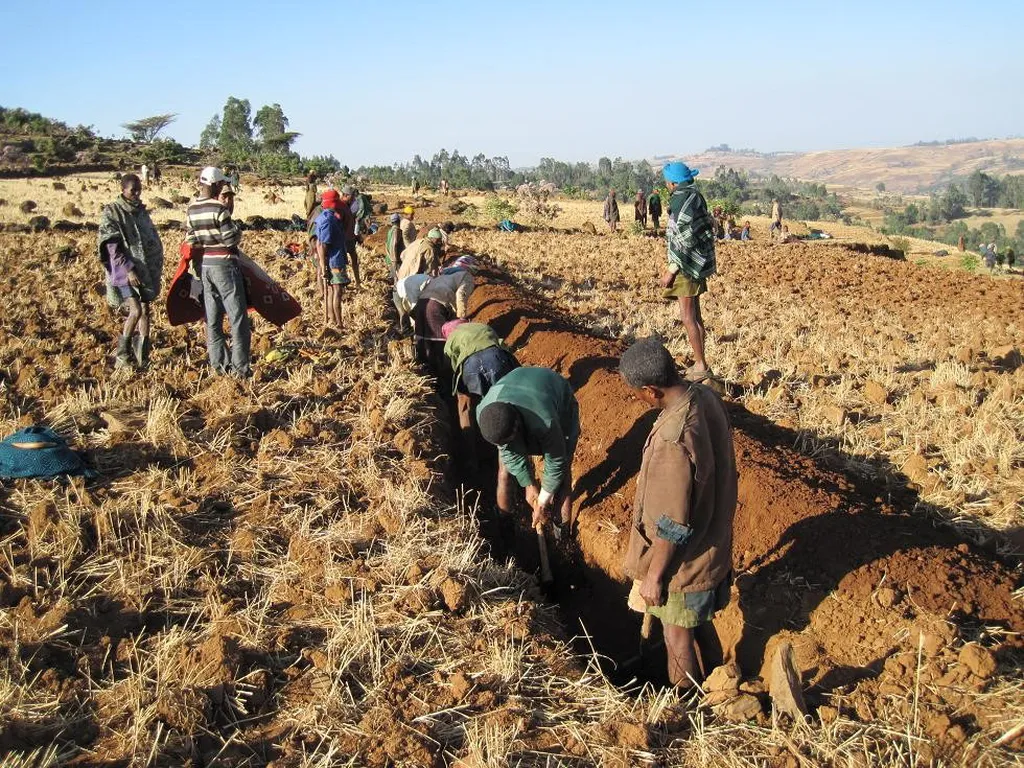In the heart of Ethiopia, where agriculture is the backbone of the economy, farmers are facing the brunt of climate change. A recent study published in ‘Scientifica’ delves into the adoption and perception of climate-smart agricultural practices (CSAPs) in the lowland, semiarid zones of the South Ethiopian regions. The research, led by Wakshum Shiferaw from the Department of Natural Resource, sheds light on the sociopsychological and institutional barriers that hinder the widespread adoption of these crucial practices.
The study, conducted in the kebeles of Wozeqa, Holte, and Fuchucha, involved 182 household heads and employed a mix of systematic sampling techniques. The data, analyzed using descriptive and inferential statistics of the right-censored Tobit model, revealed that factors such as sex, age, and the availability of mulching materials significantly influenced the intensity of adoption for CSAPs. Moreover, the use of credit and attending training sessions played a pivotal role in the adoption of these practices.
“Socioeconomic, demographic factors, and lack of stakeholders’ communication were the main determining factors that influenced respondents’ adoption of CSAPs,” Shiferaw noted. The study found that 60% of the respondents implemented agroforestry, while 18% cultivated improved crop varieties. Notably, 64% of the farmers agreed that the use of climate-resilient crop varieties increased the yield of crops like sorghum, and 72% reported that conservation agriculture boosted crop yields.
The commercial implications of these findings are substantial. As climate change continues to impact agricultural productivity, the adoption of CSAPs can provide a buffer, ensuring food security and economic stability. The study underscores the need for targeted training programs and improved communication among stakeholders to enhance the adoption of these practices.
Looking ahead, this research could shape future developments in the field by highlighting the importance of tailored interventions that consider the unique socioeconomic and demographic contexts of farming communities. By addressing these barriers, policymakers and agricultural extension services can better support farmers in their transition to more resilient and sustainable practices.
As the world grapples with the challenges of climate change, the insights from this study offer a beacon of hope for the future of agriculture in Ethiopia and beyond. The findings not only emphasize the need for targeted training and improved communication but also pave the way for innovative solutions that can drive the adoption of climate-smart agricultural practices. In doing so, they contribute to a more resilient and sustainable future for farmers and the agriculture sector as a whole.

